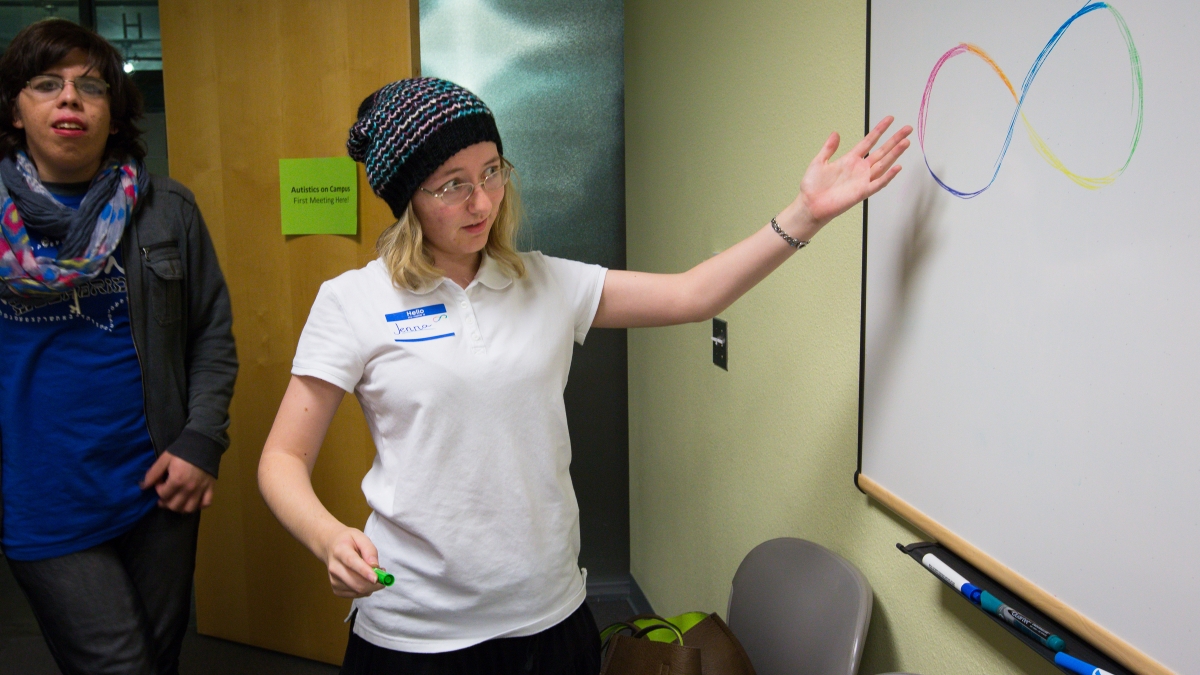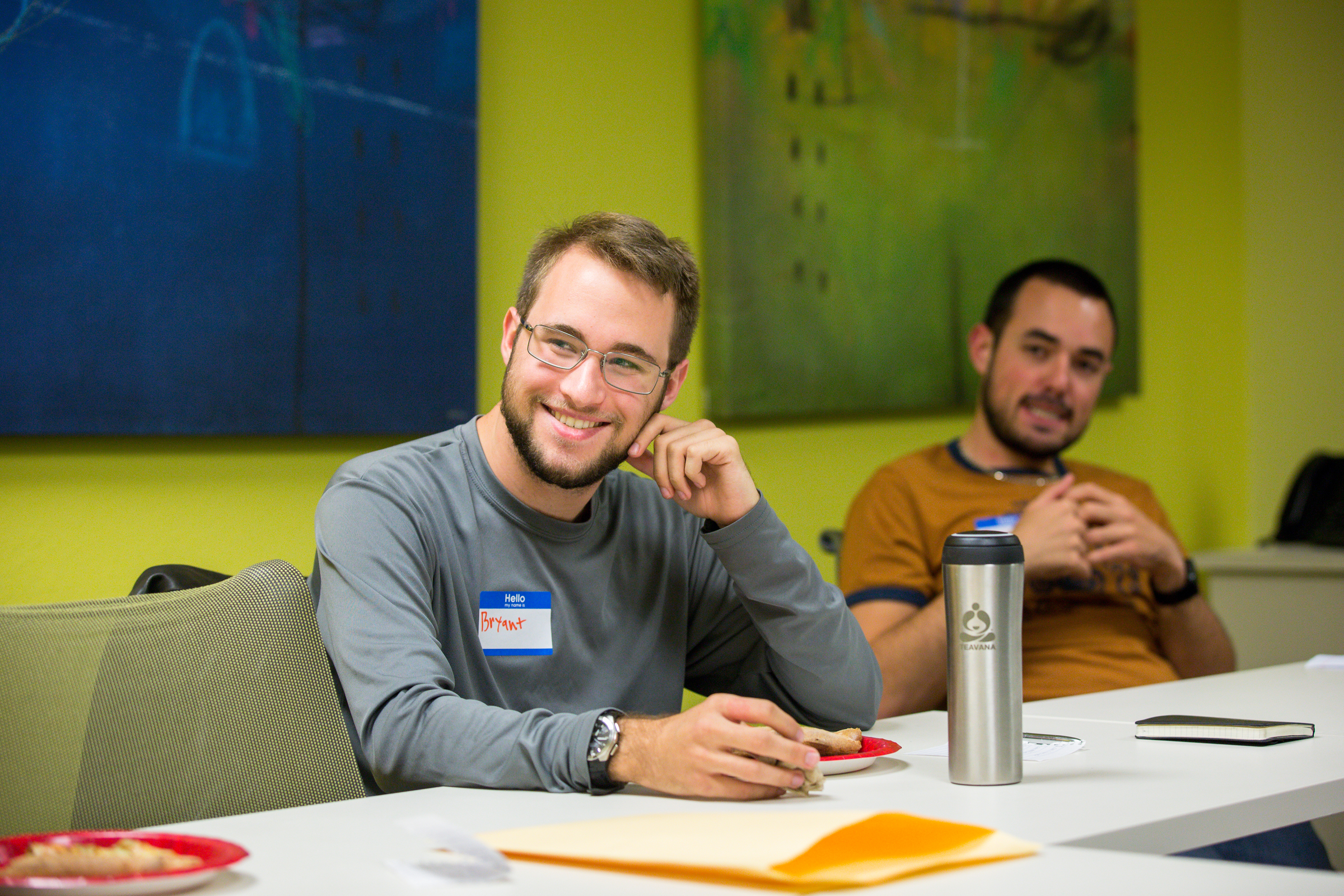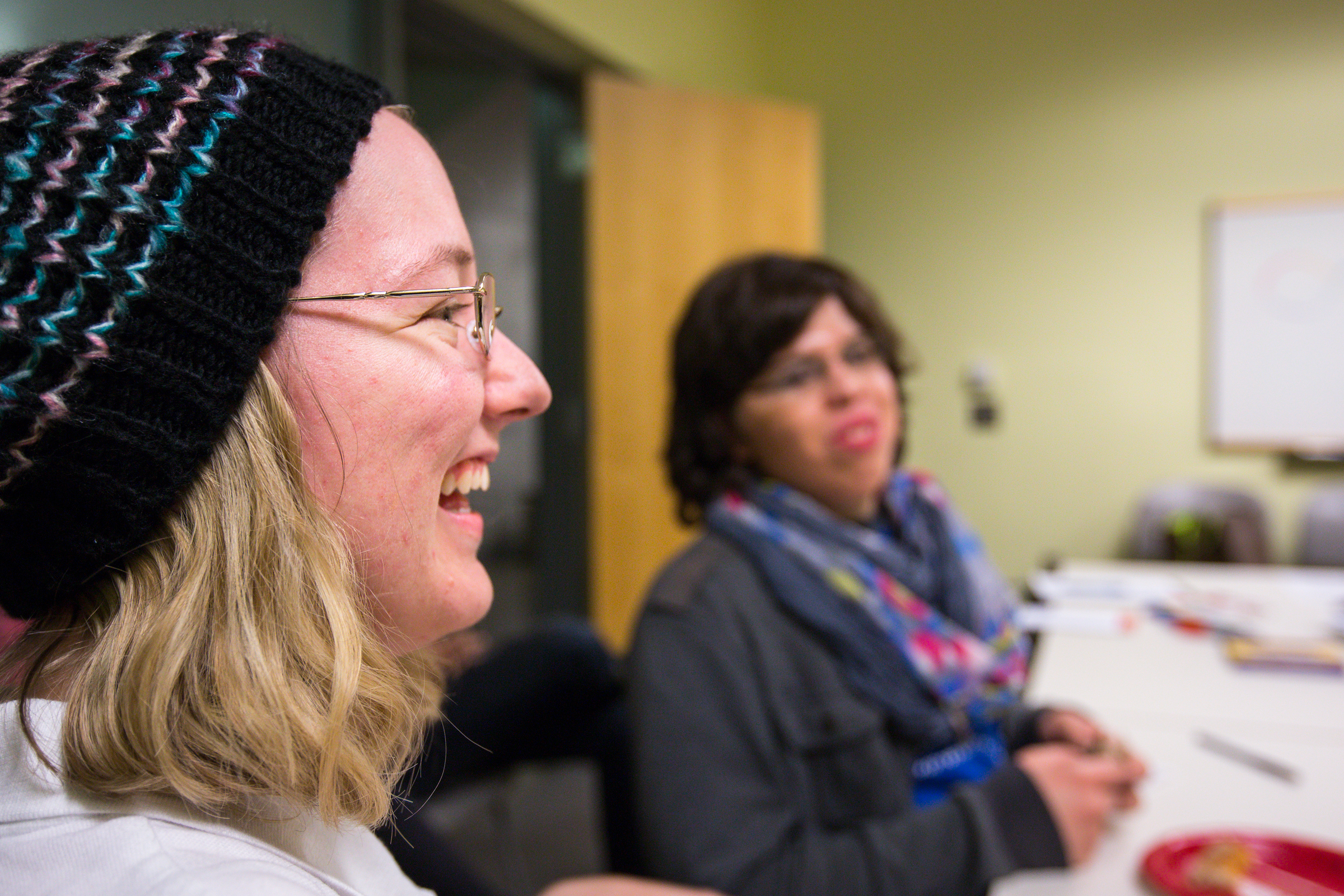“Imagine being dropped into the middle of a marching band.”
That’s how Jenna Bruenig described what it’s like to deal with sensory overload as an autistic person.
“There’s all the instruments, it’s very loud, very colorful and everyone is moving.”
The half-dozen students in the room nodded as Bruenig shared her insights. They could relate.
Bruenig and several other students have formed a new club called Autistics on Campus to share experiences and raise awareness about autism at Arizona State University.
The group has met twice and is looking for more students to join when it resumes after the winter break.
“When I came to ASU I met a couple of people who are autistic, but as a general rule you don’t meet a lot of them and I think it would be great if we had a safe space where we could meet,” said Bryant Morrow, a freshman computer science major, who is a member of the group.
“Just meeting people at all in Tempe is tricky.”
Autism is a neurodevelopmental condition in which the brain processes information differently. Some autistics have trouble communicating or with social interactions, such as making eye contact or detecting nuances in conversation. But there is a huge variation in symptoms — a point that the ASU group wants to emphasize in its outreach.
The members debated a logo for the group, possibly incorporating the neurodiversity symbol — a rainbow-colored infinity sign, which is a sideways figure 8 (shown in the photo at the top of the page).
“The neurodiversity logo symbolizes the idea that everyone’s brains are a little different and it’s OK to be different and we can all accept each other for who we are,” said Bruenig, a junior computer science major. “It’s a lot more positive than the puzzle piece.”
Some of the meeting talk was like any other college group — pizza, video games and lack of sleep. But the students also shared their unique challenges. Some take medication that has to be precisely timed. Others struggle with whether to tell their professors they’re autistic.
And then there’s hyperfocus — the tendency for autistics to concentrate intensely on one task and block out everything else.
“When you’re constantly focused on something it can often cause you to forget about other things,” said Blaine Crimin, a junior who is majoring in informatics.
They shared strategies for diverting hyperfocus.
“I have a light-up timer and you click it and it’s green, then yellow and then it flashes red when it’s time to go and that’s how I avoid being late,” Bruenig said.
Sixty-four students are registered as autistic with the ASU Disability Resource Center. Those students can take a one-credit class that covers coping strategies and study skills, and the center offers testing accommodations, adaptive technology and other help.
Bryant Morrow (left), a freshman at ASU, is a member of Autistics on Campus, a new club. Photos by Charlie Leight/ASU Now
Maria Dixon, a clinical associate professor of speech and hearing in the College of Health Solutions, is the group’s faculty adviser. Last summer, she ran a group on campus for autistic adolescents and teens to practice social communication and interaction with peers. Morrow contacted her about a college-age group, and eventually, Autistics on Campus was formed.
“The social part of college is hard for them, all the things involved with interactions between people that have nothing to do with learning from a textbook,” she said. She’s worked with autistic students on strategies for dealing with roommates and professors.
“It’s like trying to read other peoples’ minds is what they tell me,” Dixon said.
Autistics on Campus is not a therapeutic group, Dixon said.
When she asked the students how the group might affect their lives, several answered: “More social activities!”
Autistics on Campus is planning an outreach project for Autism Awareness Month in April, and debated what that might be.
Jenna Bruenig (left) and Peridot Sai are among the founding members of Autistics on Campus, a new group that will focus on outreach, acceptance and social activities.
“I don’t put in a lot of effort to suppress my symptoms. I would like people to know a little bit about autistic body language,” Bruenig said. “When I’m fidgeting, I can pay attention. I don’t have to be looking at you to listen to you.”
They also are interested in dispelling myths, like the perception that autistic people are savants, like the one portrayed in the movie “Rain Man,” or that they have an intellectual disability.
“We want to focus on acceptance and education,” Bruenig said.
“There are autistic people on campus and there are people on campus who will have an autistic kid or marry an autistic person and they should know it’s OK.”
More Sun Devil community

A champion's gift: Donation from former Sun Devil helps renovate softball stadium
Jackie Vasquez-Lapan can hear the words today as clearly as she did 17 years ago.In 2008, Vasquez-Lapan was an outfielder on Arizona State University’s national championship-winning softball team,…

Student-led business organization celebrates community, Indigenous heritage
ASU has seen significant growth in Native American student enrollment in recent years. And yet, Native American students make up less than 2% of the student population.A member of the Navajo Nation,…

Remembering ASU physical chemist Andrew Chizmeshya
Andrew Chizmeshya, a computational chemist and materials scientist whose work spanned over three decades at Arizona State University, died on March 7 at the age of 63.A dedicated mentor and cherished…




